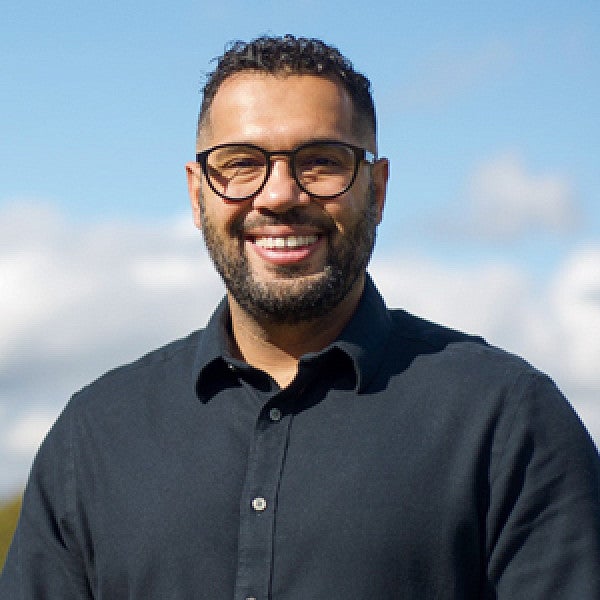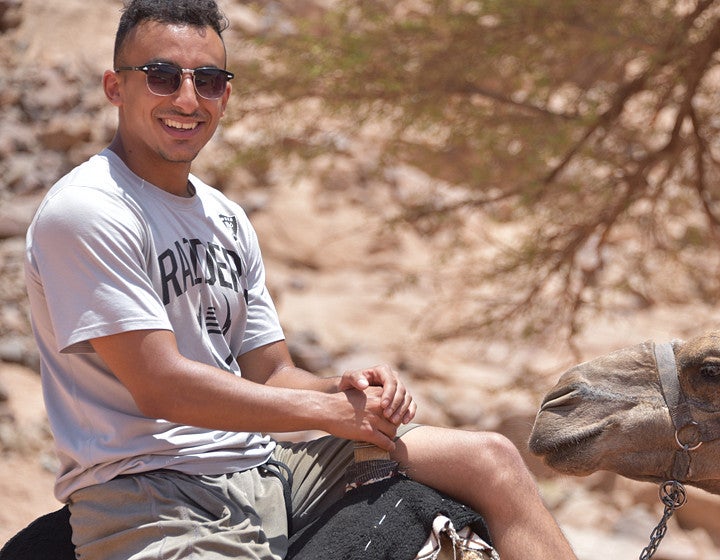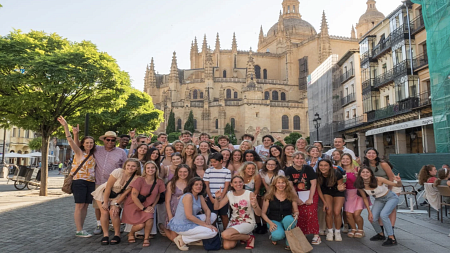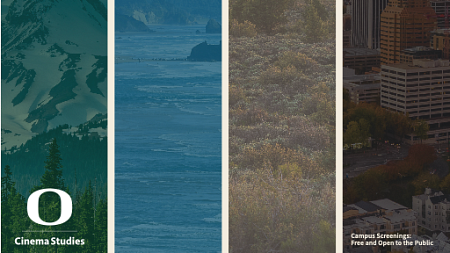The minor in Arabic studies facilitates proficiency in the Arabic language, familiarizes students with the cultures of the Arabic-speaking world, provides facility with the Arabic textual tradition, and affords a foundation for professional and graduate work using the Arabic language.
Coursework trains students to read, interpret, and contextualize "texts" broadly construed as written, oral, and audio-visual. This is accomplished through mastering the Arabic language, increasing knowledge of Arab cultural themes, and engaging appropriate scholarly literature necessary to understand Arabic texts in an informed, relevant way.
What You Can Do with a Degree in Arabic Studies
Students with a minor in Arabic Studies have gone on to work in NGOs, the foreign service, international business, nonprofits, and political action groups. Learn more about how a background in Arabic Studies has supported alumni in their chosen career paths.

How Arabic Studies Enriches Your Career
"Since graduating from University of Oregon and obtaining my master's in Arabic from DePaul University, I have had the opportunity to teach Arabic at the Foreign Service Institute at the US Department of State as well as several colleges and universities, including American University in Washington, D.C. I'm grateful for all the opportunities that teaching Arabic has provided me!"
—Mohammed Aldawood, accounting major, Arabic studies minor, ‘12
Our Degree Program
Undergraduate students can minor in Arabic Studies by taking three years of Arabic classes and a combination of 12 credits of advanced Arabic language courses (including an optional 4 credits of a department-approved class). Students who already know Arabic are exempt from the third-year Arabic requirement.

Learn from Experts in the Field
Students majoring in Arabic studies will learn from faculty who are known experts in their respective fields. Because each student is given the flexibility to build their own course of study built on their specific interests, there are opportunities to work with faculty representing a broad range of departments.

Get Real-world Experience
Study abroad or intern in the Arabic world. Connect with other Arabic speakers. Get involved in research.
Scholarships and Funding
Students pursuing a minor or graduate specialization in Arabic studies can apply for a variety of fellowships, programs, scholarships, and other opportunities to help fund their education.
Academic Support
Students in the Arabic Studies Program can seek academic support, career counseling, and other advising services through Tykeson Hall or by consulting our program advisor.




